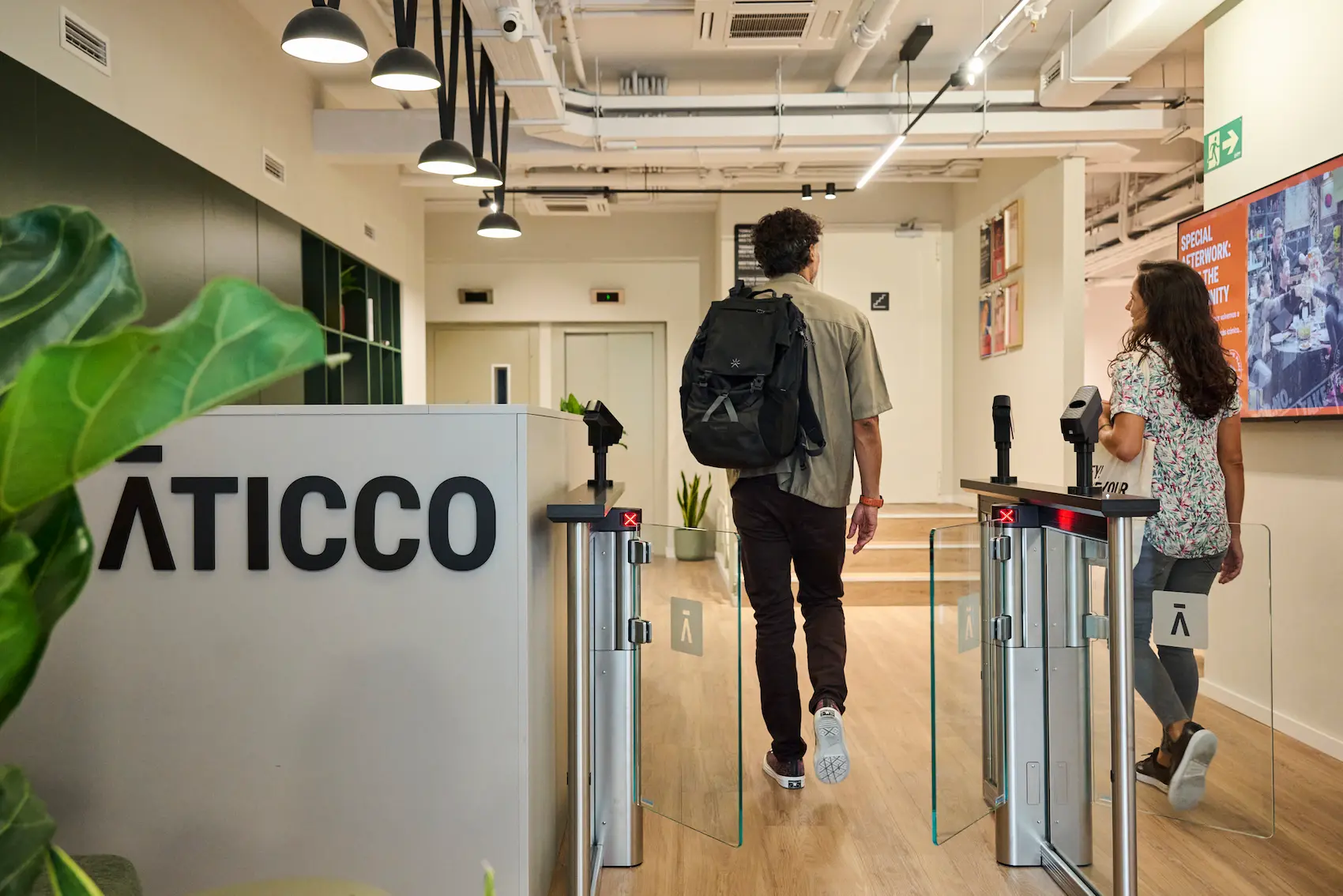Smart Working: How flexible work revolutionizes companies

The world of work has changed irreversibly. Current generations demand more than just a fixed desk and a 9-to-5 schedule; they seek flexibility, autonomy, and an environment that enhances both their productivity and well-being. In this context, smart working has emerged as a revolutionary model that redefines the relationship between employees and companies. But what makes it so powerful, and why should you consider it for your organization?
What is Smart Working?
Smart working is much more than teleworking or flexible hours. It is a comprehensive approach that combines technology, space design, organizational strategies and a results-oriented business culture. According to a Deloitte study, smart working can increase a company's productivity by 20% and reduce its operating costs by up to 30%.
The key is to give employees the right tools and environment so they can work smarter, not harder.
Unlike teleworking, which is often associated with working from home, smart working encompasses total flexibility. It can include working from the office, coworking spaces, cafes, or even at unconventional hours, always with a focus on results.
Benefits of Smart Working for companies and workers
Adopting smart working not only improves the lives of employees but also boosts the competitiveness of companies.
1. Increased productivity and efficiency
The flexible work model allows employees to customize their work environment, which increases their concentration and creativity. According to a report by Harvard Business Review, companies that adopted smart working models observed a 43% improvement in the speed to complete key projects.
2. Improvement in quality of life and work-life balance
Burnout is a growing concern in the modern workplace. Smart working responds to this need by offering employees more control over their time, allowing them to attend to their personal needs without sacrificing their professional performance. This translates into greater job satisfaction and lower staff turnover.
3. Reduction of operating costs
For companies, fewer workers in the office means a significant decrease in expenses such as rent, services, and maintenance. In addition, coworking spaces offer the possibility of adapting quickly to changing needs without long-term commitments.
Keys to Implementing Smart Working in Your Company
Although the benefits are clear, effective implementation requires planning. Here are some essential steps:
1. Invest in appropriate technology
Collaboration software such as Slack, Trello, or Microsoft Teams are essential to keep teams connected. In addition, video conferencing and cloud storage tools are essential.
2. Redefine the organizational culture
Shift the focus from face-to-face supervision to measurable performance. This may require training for leaders and employees, as well as the creation of clear smart working policies.
3. Design spaces adapted to flexible work
Hybrid environments that combine collaboration areas, private zones, and access to hot desks are ideal. Coworking spaces stand out as key allies in this process, offering flexible and modern infrastructures.
How Smart Working transforms workspaces
The design of the workspace has evolved along with the needs of smart working. Traditional offices are no longer sufficient; modern companies are looking for environments that promote both productivity and creativity.
1. Offices adapted for flexible work
Modern work environments integrate advanced technology with ergonomic designs that facilitate workflow. At Aticco, for example, our coworking spaces are designed to offer flexibility and comfort to companies of all sizes.
2. Collaboration areas and private zones
Smart working requires a balance between interaction and focus. Common areas, such as brainstorming rooms or cafeterias, encourage creativity, while private areas allow for uninterrupted work.
Smart working is not just a trend; it's the future of work. Adopting it not only improves productivity and well-being but also positions companies as benchmarks of innovation. At Aticco, we are committed to offering the workspaces that these new generations need to thrive. Are you ready to take the next step towards smart working?
Frequently Asked Questions
-
What is smart working and how does it differ from teleworking?
Smart working is a more comprehensive model that includes flexibility in location, time, and work tools, while teleworking is limited to location (usually from home).
-
How does smart working affect employee productivity?
The focus on results, along with the autonomy to choose how to work, promotes more efficient performance and less stress.
-
What are the benefits of smart working for companies?
In addition to reducing costs, smart working improves talent attraction and retention, positioning companies as innovative and adapted to the needs of the 21st century.
-
What resources are needed to implement smart working?
Advanced technology, a results-based business culture, and flexible workspaces like those offered by Aticco are needed.



